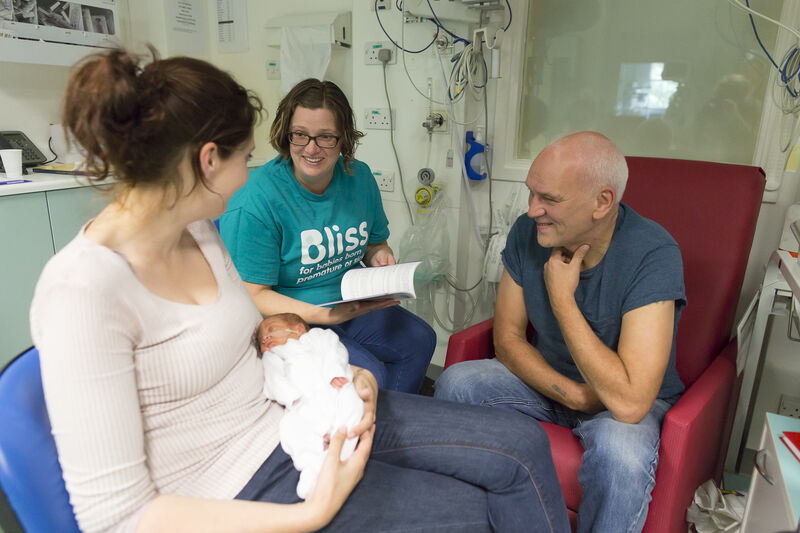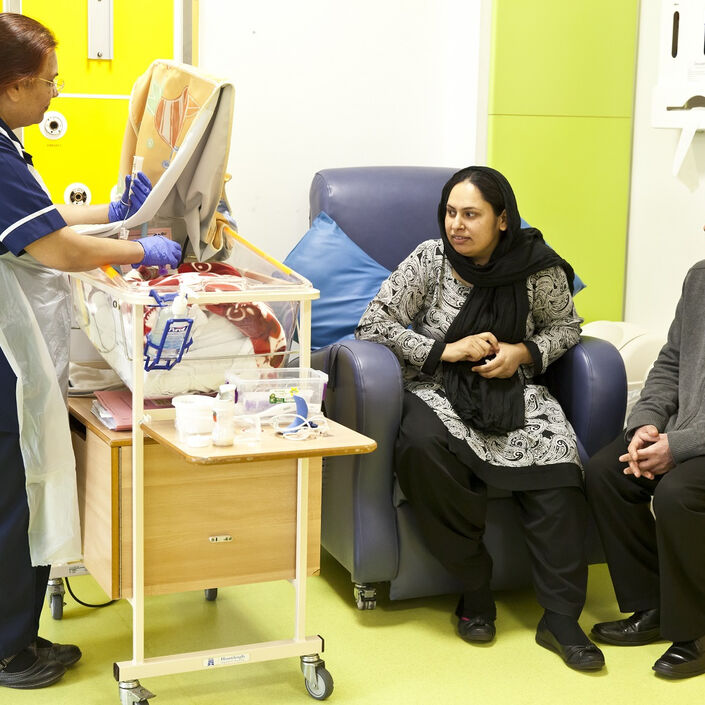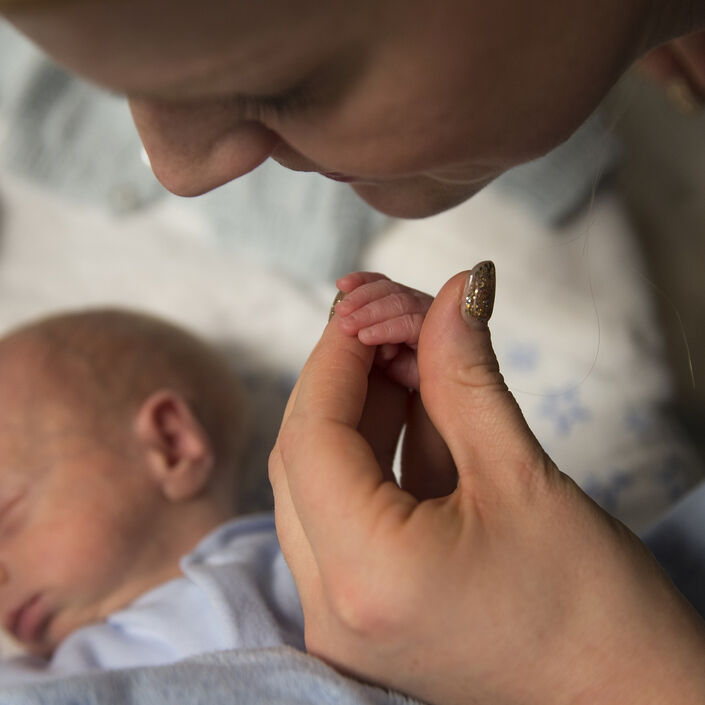Feeding
If you plan to breastfeed your baby at home, you may want to research the support that is available in your local area before you go home. Your health visitor will be able to provide you with information on local breastfeeding support. We have more information about breastfeeding.
If you will be expressing and/or bottle feeding your baby when you go home, you may want to talk to the unit staff about bringing in the bottles or teats so that your baby can start to get used to them. You can ask the unit staff when the best time to do this might be. We have more information about feeding when you go home that you may find helpful.
Staff on the unit can help you to learn how to express milk by hand. Your local breastfeeding support service or health visitor will be able to help you with this when you get home.
If you are planning to express milk at home and are not hand expressing, you will need your own breast pump. If the pump that you used in hospital is working well for you, you may want to buy or rent the same type of machine. Your local breastfeeding support service or health visitor may also be able to give you details of where to hire a breast pump or get a pump for a shorter term.
Equipment for your baby
Many parents ask about getting special equipment for their baby, such as cots, pushchairs, and car seats. The members of staff on the unit who are supporting you with your discharge, or in some cases, a community neonatal nurse, may talk to you about any specific equipment that your baby might need and will answer any questions you might have.
Parent support groups
If you haven’t already, you might like to join our private Facebook group for parents of babies born premature or sick. Here you can speak to parents who have already gone home with their babies, to find out what equipment they have found useful and lots of other information. There is also a wide range of community groups that provide support to parents whose babies have specific medical conditions. Have a look at our information which signposts to other helpful organisations.
Rooming-in
Before going home, hospitals might offer you the chance to 'room-in'. This means you stay with your baby in a room on or near the unit and care for them overnight for 1 to 2 days. The aim of rooming-in is to give you more confidence in caring for your baby, while having the support of unit staff to help you if you need it.
Rooming-in can be a reassuring experience and can help you to continue to build a close relationship with your baby. It can also help you to look out for cues (your baby’s way of telling you what they need) and changes in behaviour. Talk to the unit staff about whether rooming-in is available at your unit.
Registering your baby's birth
In England, Wales, and Northern Ireland a baby must be registered within 42 days of their being born. In Scotland, a baby must be registered within 21 days.
You should do this at the local register office for the area where the baby was born or at the hospital before your baby is discharged. The hospital will inform you whether it is possible to register the birth at the hospital. If parents are married, one parent can register the birth, but it is different for parents who are not married. Find more information about registering a birth on the UK Government website.
Registering your baby with a GP
You will need to register your baby with a general practitioner (GP) as soon as possible. This can be done before you register your baby’s birth. All you will need is your baby’s NHS number, which the hospital staff will give you. This is important for you to get any care or medical prescriptions your baby may need, after going home. It is also important so that your baby can get their vaccinations on time. It may be helpful for your baby’s GP to be located close to your home or in a convenient place for your family.
If your baby is going home on oxygen
Some babies will need to go home on oxygen (with oxygen equipment). Unit staff will talk to you about this in good time so you can plan your baby’s discharge together, receive training to care for your baby’s oxygen needs and ask any questions. We have more information about what to prepare for when looking after your baby if they are on oxygen.
If your baby is on medication
It is possible that your baby will still need medication or have ongoing medical issues when you are told they can go home. It’s natural to feel unsure about being responsible for your baby’s medical care and medication, but unit staff will help you feel confident before you are discharged home. The initial supply of medication and devices, e.g. syringes, is usually provided by the hospital pharmacy team. Repeat prescriptions for medications are supplied by the GP and community pharmacy team.
You can also talk to your community pharmacy team to explain what medication your baby needs and to explain that you will be coming in regularly for repeat prescriptions. This will help them to have a supply of the medication your baby needs ready for you.
The PADDINGToN Study has developed a series of free resources for parents and families which provide information about giving medicines to babies at home. This includes a printable PDF document, Medicines Administration Record.
If your baby has a nasogastric (NG) tube
If your baby is going home with a nasogastric tube (also called an NG tube), a member of the unit staff will show you how to feed, and care for the tube. If you have a community neonatal nurse, they will replace the tube when you are at home.
Some units may provide training if you wish to learn how to replace the tube yourself, but this is optional. We have more information about tube feeding that you may find helpful.
Travelling by car
It is important to have an appropriate car seat for your baby, even if the only car journey you are going to make is from the hospital to home.
We have more information about travelling by car, including information about the use of car seats with premature or sick babies.
If you have twins or multiples
If you have twins or multiples, it is common that one baby may be ready to go home before the other/s. Your babies will only be separated if there is likely to be a long period between each of them being ready to go home.
Caring for two or more babies in different places can be emotionally and practically difficult.
You may want to contact Twins Trust, who provide support to parents with twins or multiples.
Scent cloths
One way to prepare your baby for going home is to make scent cloths for your baby’s cot. Bringing something which smells of home may help your baby to be comforted by familiar objects and smells when they arrive home. Check with the staff first if it is appropriate before you bring any objects onto the unit.


